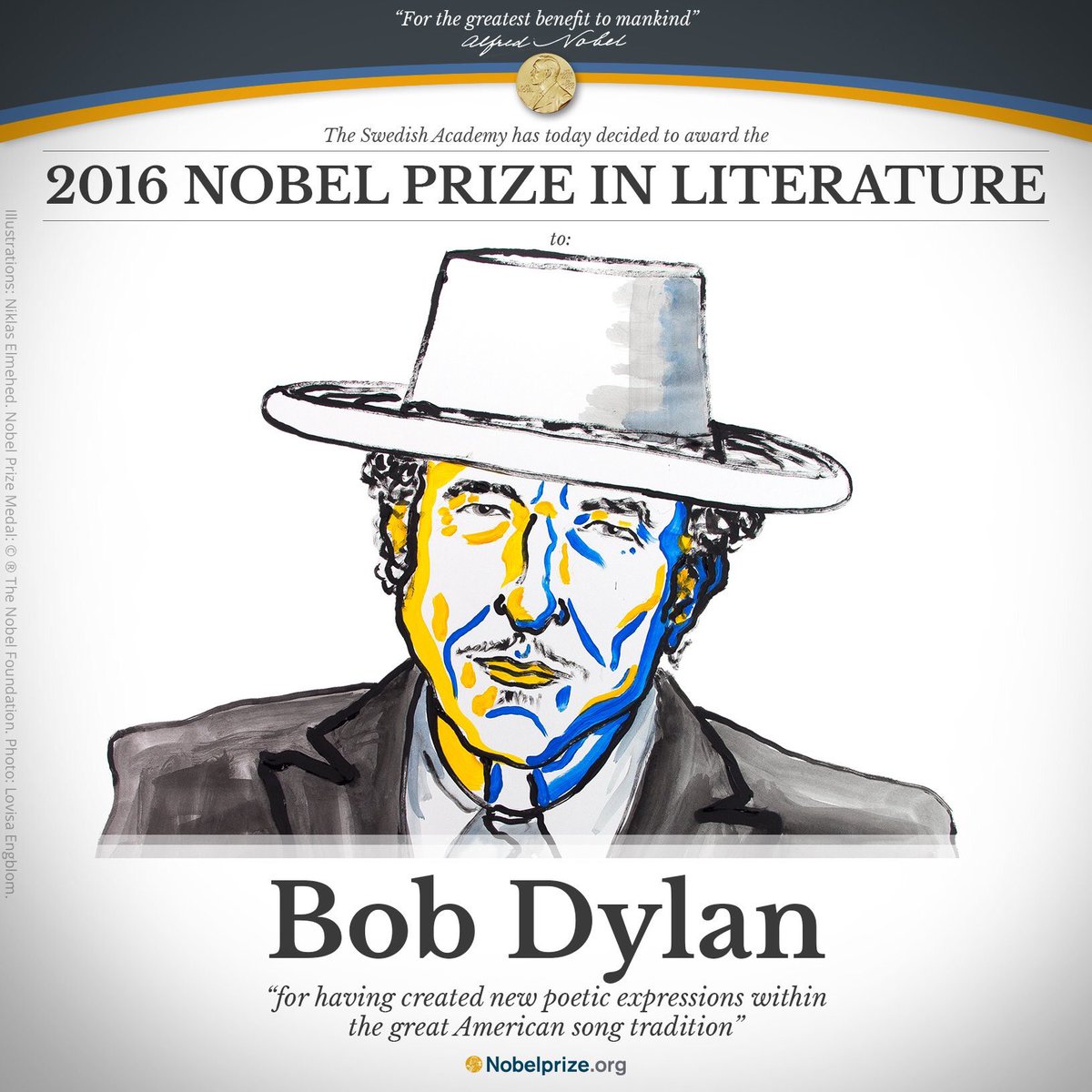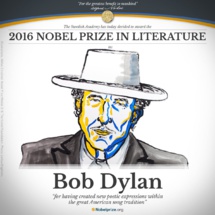Author Andrea Pitzer, examining his lecture for the news site Slate, said she found striking similarities between Dylan's quotations from Herman Melville's classic novel "Moby-Dick" and the SparkNotes version.
Dylan, for example, quotes Melville as calling the elusive whale Moby "the embodiment of evil." But Pitzer pointed that the phrase does not appear in the novel itself, although it appears in the SparkNotes synopsis.
At least 20 references in Dylan's lecture about "Moby-Dick" bear some similarity to the SparkNotes version, she wrote.
Pitzer noted that Dylan has long been unabashed about adapting musical and lyrical passages into his songs.
"Dylan remains so reliant on appropriation that tracing his sourcing has become a cottage industry," she wrote.
Lifting from earlier works is much more commonplace in music than in literature, where accusations of plagiarism are a major dent on reputation.
The Swedish Academy stunned observers by choosing "rock poet" Dylan for literature's top prize.
Dylan -- whose representatives did not reply to the Slate article -- took more than two weeks before acknowledging the prize and skipped the ceremony in December, citing pre-existing commitments.
But Dylan, famously taciturn when he is not singing, finally explored his connections with literature in his Nobel lecture in which he also cited as influences Homer's epic poem "The Odyssey" and World War I novel "All Quiet on the Western Front."
Sara Danius, the permanent secretary of the Swedish Academy, had described the lecture as "extraordinary and, as some might expect, eloquent."
-----------------------------------------------------------------------------------------------------------------
Dylan, for example, quotes Melville as calling the elusive whale Moby "the embodiment of evil." But Pitzer pointed that the phrase does not appear in the novel itself, although it appears in the SparkNotes synopsis.
At least 20 references in Dylan's lecture about "Moby-Dick" bear some similarity to the SparkNotes version, she wrote.
Pitzer noted that Dylan has long been unabashed about adapting musical and lyrical passages into his songs.
"Dylan remains so reliant on appropriation that tracing his sourcing has become a cottage industry," she wrote.
Lifting from earlier works is much more commonplace in music than in literature, where accusations of plagiarism are a major dent on reputation.
The Swedish Academy stunned observers by choosing "rock poet" Dylan for literature's top prize.
Dylan -- whose representatives did not reply to the Slate article -- took more than two weeks before acknowledging the prize and skipped the ceremony in December, citing pre-existing commitments.
But Dylan, famously taciturn when he is not singing, finally explored his connections with literature in his Nobel lecture in which he also cited as influences Homer's epic poem "The Odyssey" and World War I novel "All Quiet on the Western Front."
Sara Danius, the permanent secretary of the Swedish Academy, had described the lecture as "extraordinary and, as some might expect, eloquent."
-----------------------------------------------------------------------------------------------------------------









 Home
Home Politics
Politics











